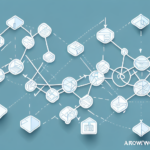Unlocking the Benefits of Origin Engineering for Supply Chain Management
In today's global economy, supply chain management has become increasingly complex, with businesses facing challenges such as rising costs, sustainability concerns, and increasing regulatory requirements. One approach that has emerged to address these issues is origin engineering, a process that involves designing products and supply chain processes that consider the origin of materials, components, and finished products. By integrating origin engineering into their supply chain strategies, businesses can unlock a range of benefits, from improved cost efficiencies to enhanced product traceability and transparency.
What is Origin Engineering and How It Impacts Supply Chain Management?
Origin engineering is a process that involves designing products and supply chain processes to consider the origin of materials, components, and finished products. This approach emphasizes the sourcing and selection of materials and components, evaluating their sustainability, ethical practices, and compliance with local regulations. By taking a more active role in the sourcing and selection of these elements, businesses can ensure that their products meet the highest standards of quality and sustainability.
The impact of origin engineering on supply chain management is profound, as it helps businesses build more resilient supply chains that are better able to adapt to changing market dynamics. According to a [2023 McKinsey report](https://www.mckinsey.com/business-functions/operations/our-insights), companies that integrate origin engineering can see up to a 15% increase in supply chain efficiency. By improving product quality and traceability, businesses gain a competitive advantage while reducing costs and enhancing customer satisfaction. Furthermore, origin engineering enables businesses to better manage risk by identifying and mitigating potential supply chain disruptions before they occur.
One of the key benefits of origin engineering is that it promotes transparency and accountability throughout the supply chain. By tracking the origin of materials and components, businesses can ensure they are not contributing to unethical practices such as child labor or environmental degradation. This not only benefits the business by improving its reputation and brand image but also benefits society by promoting ethical and sustainable practices.
The Role of Origin Engineering in Building Resilient Supply Chains
A resilient supply chain can respond effectively to disruptions and adapt to changing market conditions. Origin engineering plays a key role in this process by enabling businesses to better understand their supply chain risks and opportunities, and develop strategies to mitigate potential disruptions. By taking a more active role in the sourcing and selection of materials and components, businesses can reduce their reliance on single suppliers, thereby decreasing the likelihood of supply chain disruptions caused by natural disasters, political instability, or market fluctuations.
Moreover, origin engineering helps businesses improve the quality and sustainability of their products, reducing the likelihood of product recalls and other disruptions caused by quality issues. By enhancing product traceability and transparency, businesses can detect and respond to issues more quickly, minimizing the impact of supply chain disruptions on their operations.
Another benefit of origin engineering is the ability to identify and address ethical and social issues within supply chains. By mapping out the origin of materials and components, businesses can ensure they are not inadvertently supporting unethical practices. This can enhance the business’s reputation and reduce the risk of negative publicity or legal action.
The Impact of Origin Engineering on Cost Reduction and Efficiency in Supply Chain Operations
Origin engineering significantly contributes to cost reduction and efficiency in supply chain operations. By improving the quality and sustainability of materials and components, businesses can lower their inbound logistics costs and enhance the efficiency of their production processes. Additionally, by reducing the likelihood of supply chain disruptions caused by quality issues, businesses can avoid the costs associated with product recalls, lost sales, and damaged brand reputation.
Moreover, origin engineering helps businesses identify areas for cost savings and efficiency improvements throughout their supply chain. By analyzing data on the origin and quality of materials and components, businesses can uncover opportunities to streamline sourcing and procurement processes, reduce waste, and optimize production and logistics operations.
An additional advantage is meeting regulatory requirements and industry standards. Ensuring materials and components are sourced from reputable suppliers and meet relevant quality and safety standards allows businesses to avoid costly fines and legal issues. Furthermore, demonstrating a commitment to sustainability and ethical sourcing practices enhances reputation and appeals to socially conscious consumers.
Finally, origin engineering facilitates innovation and product development. Collaborating closely with suppliers and manufacturers to develop new materials and components enables businesses to create products that are more efficient, durable, and environmentally friendly. This differentiation can attract new customers and increase market share.
How Origin Engineering is Revolutionizing Product Traceability and Transparency
Product traceability and transparency are critical for consumers, regulators, and businesses alike. Origin engineering revolutionizes these aspects by providing greater visibility into the origin and quality of materials and components, as well as the production and logistics processes involved in bringing products to market.
By enhancing product traceability and transparency, businesses can demonstrate their commitment to sustainability, ethical practices, and compliance with local regulations. This approach also builds customer trust by offering greater transparency into production and supply chain processes. According to a [Nielsen survey](https://www.nielsen.com/us/en/insights/article/2018/consumer-sentiment-more-important-than-ever-in-todays-markets/), 73% of consumers say they would change their consumption habits to reduce their environmental impact.
One of the key benefits of origin engineering is the ability to quickly identify and address issues that may arise in the production or supply chain process. By tracking the origin and quality of materials and components, businesses can swiftly identify potential quality issues and implement corrective actions before they escalate. This not only improves product quality and customer satisfaction but also reduces waste and minimizes the environmental impact of production processes.
Exploring the Key Concepts of Origin Engineering for Sustainable Supply Chain Management
Sustainability is a paramount concern for businesses across all industries, as consumers and regulators increasingly demand greater accountability and responsibility. Origin engineering offers a robust framework for businesses to address these concerns and build more sustainable supply chains.
This approach focuses on sourcing and selecting materials and components that meet the highest standards of sustainability, ethical practices, and compliance with local regulations. By actively managing the sourcing and selection of these elements, businesses can construct sustainable supply chains that reduce their environmental footprint, minimize waste, and promote social responsibility.
Additionally, origin engineering involves implementing innovative technologies and processes to optimize supply chain operations. For instance, the use of blockchain technology can provide enhanced transparency and traceability in supply chain management, allowing businesses to track the origin and movement of their products and materials. This technology not only identifies potential areas for improvement but also ensures that sustainability and ethical standards are upheld throughout the supply chain.
The Importance of Data Analytics in Optimizing Origin Engineering Strategies for Supply Chain Management
Data analytics is a critical component of origin engineering, enabling businesses to understand and optimize their supply chain operations effectively. By analyzing data on the origin and quality of materials, components, and finished products, businesses can pinpoint areas for improvement and take corrective actions proactively.
Furthermore, data analytics allows businesses to refine their origin engineering strategies over time by identifying trends and patterns within their supply chain operations and adjusting accordingly. Leveraging data analytics for decision-making helps businesses build more efficient, resilient, and sustainable supply chains that deliver greater value to their customers.
Overcoming Challenges in Implementing Effective Origin Engineering Programs Across the Supply Chain
Despite the clear benefits, implementing effective origin engineering programs across the supply chain poses several challenges. A primary obstacle is the lack of visibility and transparency across the supply chain, with many businesses struggling to access accurate data on the origin and quality of materials and components.
To overcome these challenges, businesses can leverage technologies such as blockchain, which provides a secure and decentralized method to store and share data across the supply chain. By utilizing blockchain to enhance supply chain transparency and traceability, businesses can establish more effective origin engineering programs that deliver greater value to customers, reduce costs, and improve resilience.
Understanding the Legal and Regulatory Frameworks for Origin Engineering in Global Supply Chains
Businesses must navigate complex legal and regulatory frameworks when implementing origin engineering programs across global supply chains. These frameworks can vary significantly across geographies, making it essential for businesses to conduct due diligence and stay updated on the latest requirements and best practices.
One effective strategy is to collaborate with industry associations and regulatory bodies to develop standards and frameworks for origin engineering that are recognized and supported by governments and regulatory entities. By partnering with these stakeholders, businesses can ensure their origin engineering programs are legally compliant and adhere to the highest standards of sustainability, ethical practices, and regulatory compliance.
Best Practices for Implementing Successful Origin Engineering Programs in Your Organization
Implementing successful origin engineering programs requires a multifaceted approach involving collaboration across the supply chain, the adoption of advanced technologies, and a steadfast commitment to sustainability, ethical practices, and regulatory compliance.
Key best practices include:
- Selecting materials and components that meet high standards of sustainability, ethical practices, and compliance with local regulations
- Investing in technologies such as blockchain to enhance supply chain transparency and traceability
- Collaborating with industry associations and regulatory bodies to develop recognized standards and frameworks for origin engineering
- Engaging suppliers and partners in the origin engineering process to build more collaborative and effective supply chains
- Utilizing data analytics to inform decision-making and optimize supply chain operations over time
By adhering to these best practices, businesses can construct more resilient, efficient, and sustainable supply chains that deliver greater value to their customers and stakeholders.
Conclusion
Origin engineering is a powerful tool for businesses aiming to optimize their supply chains and build more resilient, efficient, and sustainable operations. By actively managing the sourcing and selection of materials and components, businesses can reduce costs, enhance quality, and promote sustainability. Additionally, adopting technologies such as blockchain and data analytics to improve supply chain transparency and traceability provides businesses with a competitive edge while mitigating risks associated with supply chain disruptions.
By following best practices and collaborating with industry associations and regulatory bodies, businesses can successfully implement origin engineering programs across their supply chains, delivering increased value to customers, enhancing sustainability, and fostering social responsibility.
For more information on optimizing your supply chain through origin engineering, visit ShipScience.






















